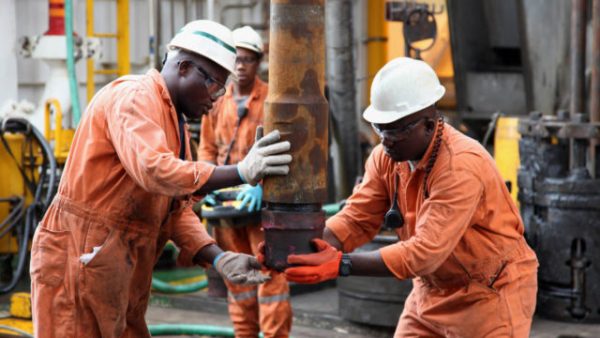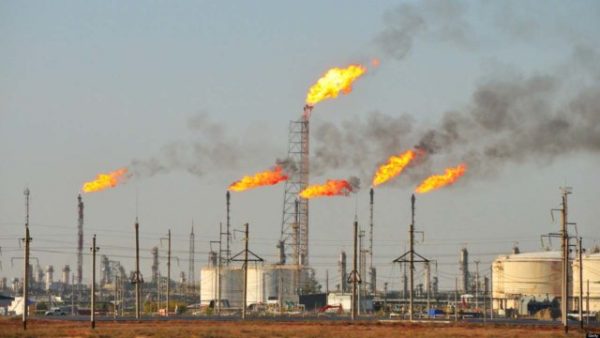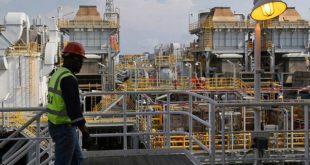Chinese state energy major, PetroChina, has been waiting to unload a cargo of United States crude at Nigeria’s giant new refinery for nearly a month due to payment issues, according to four trading sources and shipping data, Reuters reported on Thursday.
The impasse highlights difficulties the $20bn plant funded by Africa’s richest man Aliko Dangote faces in its aim to be the biggest refinery on the continent and in Europe when it reaches full capacity this or next year.

Dangote aims to reverse the trend by which the oil-rich country exports its crude but almost totally relies on imports of fuel and other refined products.
The two million barrels West Texas Intermediate crude cargo shipped by PetroChina onboard supertanker Maran Mira has, however, been floating off Nigeria since March 28, shipping data on LSEG and Kpler showed.

The completion of the oil sale from PetroChina to Dangote has been delayed as the refinery has yet to issue a letter of credit to the Chinese trader, one source familiar with the matter said.
A letter of credit is the most common form of trade finance. A buyer’s bank sends a letter to the seller’s bank guaranteeing payment to the seller once the goods arrive.
PetroChina was also not keen to receive oil products as payment, one of the ways that Dangote has been paying for its crude, the source said.
Two of the sources also told Reuters that the refinery has had difficulty accessing dollars through the Nigerian government, with the naira’s slide against the US dollar as global oil prices have risen straining Nigeria’s finances.
The government did not immediately respond to a request for comment and a Dangote executive did not directly address the issue in comments to Reuters.
PetroChina has another two million barrels of WTI crude onboard supertanker Kondor that is making its way to Nigeria, according to another source and LSEG ship tracking data.
Potential sellers of US WTI crude to Dangote have been confronted with difficult payment terms: either a 60 to 90 credit or an exchange of refined products for the crude oil, three of the sources said. Credit terms for oil deals are typically 30 days.
PetroChina did not respond to a Reuters request for comment. A shipbroker estimated that the ship is incurring demurrage costs of around $65,000 a day.
Dangote Group Executive, Edwin Devakumar, told Reuters that seeking favourable sale prices and credit terms were normal business practices.
“If someone gives me one year credit, I’ll grab it and if not, I’ll negotiate the best possible deal,” he said. “When you go to a shop to buy something … You’ll try the best possible deal and I do the same.
“We are not delayed. If someone’s business is delayed, he is not giving us a good deal,” Devakumar said, without specifically addressing the issue with PetroChina.
The Dangote refinery started operations in January and has reached half its capacity in recent weeks but a further increase is being slowed by its need to borrow billions of dollars in working capital to be able to buy large volumes of crude, trading sources said.
Devakumar declined to comment on the current run rates at the refinery. The facility is importing around 10 crude oil cargoes a month, two traders said, roughly half the capacity of 650,000 barrels per day it seeks to reach this year or next, which would make it the largest refinery in Africa and Europe.
The amount of Nigerian and US crude discharged at Dangote totalled 8.4 million barrels in March and 5.4 million barrels so far in April, Kpler data showed. Another one million barrels of Nigerian crude is expected to arrive on April 27.
Trafigura, Mercuria, Vitol, Shell and NNPC were among Dangote’s suppliers of crude last month, according to Kpler.
Another report by Reuters stated that Nigeria’s oil regulator on Thursday clarified that recent changes to fuel sulphur content standards for diesel are part of a regional harmonisation effort, not a relaxation of regulations for local refineries.
Last week, an S&P Global report noted a significant shift in the West African fuel market after Nigeria altered its maximum diesel sulphur content from 200 parts per million to around 650 ppm, sparking concerns it might be lowering its standards to accommodate domestically produced diesel which exceeds the 200 ppm cap.
But the Nigerian Midstream and Downstream Petroleum Regulatory Authority said it was only adhering to a 2020 decision by the Economic Community of West African States which mandated a gradual shift to cleaner fuels across the region.
High sulphur content in fuels can damage engines and contribute to air pollution.
Currently, the ECOWAS rule allows locally produced fuel to have a higher sulphur content until January 2025. At that point, a uniform standard of below 5 ppm will apply to both domestic refining and imports from outside West Africa.
The Chief Executive, NMDPRA, Farouk Ahmed, told Reuters the new limits comply with the decision by ECOWAS that mandated stricter fuel specifications, with enforcement starting in January 2021 for non-ECOWAS imports and January 2025 for ECOWAS refineries.
“We are merely implementing the ECOWAS decision adopted in 2020. So a local refinery with a 650 ppm sulphur in its product is permissible and safe under the ECOWAS rule until January next year where a uniform standard would apply to both the locally refined and imported products outside West Africa”, Ahmed said.
He said importers were notified of the progressive reduction in allowable sulphur content, reaching 200 ppm this month from 300 ppm in February, well before the giant Dangote refinery began supplying diesel.
Importers were previously permitted to bring in diesel with a sulphur content between 1,500 ppm and 3,000 ppm.
The shift to cleaner fuels aligns with global environmental efforts and ensures a level playing field for regional refiners.
 MMS PLUS NG – Maritime, Aviation, Business, Oil and Gas News Online Newspaper with coverage in Maritime, Oil and Gas, Aviation, Power and Energy as well as Financial News
MMS PLUS NG – Maritime, Aviation, Business, Oil and Gas News Online Newspaper with coverage in Maritime, Oil and Gas, Aviation, Power and Energy as well as Financial News










